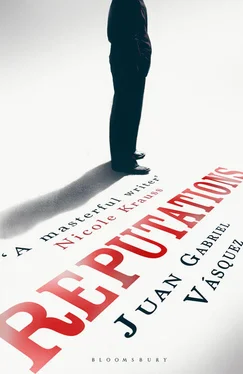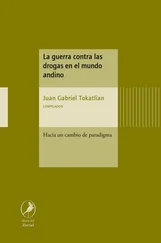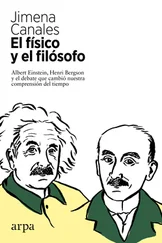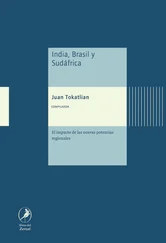He remembered the Chaplin film that Rendón went to see the night before, and also the profound but discreet depression overwhelming him during those days, and also the conversation with the managing editor of El Tiempo and the suggestion to go and rest in a clinic. Mallarino remembered all that, and also the blue pencil drawings that Rendón left at the newspaper office, beside the two recently published volumes of his political cartoons, and in his memory Rendón left the office after ten in the evening and went into La Gran Vía, listened to music and drank aguardiente and joked with the bartender, and arrived at his house on Eighteenth Street before midnight, sad but not drunk yet certainly tired. Mallarino remembered him planning, sleeplessly, his cartoon for the next day; also waking up and talking to his mother about what he had planned. Rendón went out, dressed as usual in full mourning, and Mallarino remembered him standing for a short time at the corner of Seventh Avenue and then going into La Gran Vía. In his memory, Rendón orders a Germania beer; he receives it on a tray; he lights a cigarette. He thinks of Clarisa, the young girl he’d fallen in love with in Medellín, so many years ago, and relives the displeasure and the girl’s parents’ protest; he thinks of Clarisa and her heroic stubbornness, her pregnancy, her forced confinement, her illness and death. He finishes his beer, takes out his pencil and draws one last picture (a diagram of straight lines calculating the path of a bullet penetrating the skull), and writes those seven words that Mallarino remembered so well: I beg not to be taken home , and then points the barrel of his Colt 25 at his temple. Mallarino remembered him doing what nobody ever saw: shooting himself. He remembered the head falling heavily to the table and the tray bouncing with a metallic jangling, the lips split by the blow and a broken tooth, the blood that begins to spill out (the blood that looks black running over the old wooden surface), and then he remembered him arriving at Dr Manuel Vicente Peña’s clinic, and remembered the doctor writing his report, choosing those words that Mallarino saw as if seeing them in black-and-white: stertorous breathing, subcutaneous haematoma, haemorrhage in mouth, right parietal lobe . The doctors perform a trepanation of the cranium to alleviate the pressure of the blood and a strong viscous spurt lands on the white floor. Mallarino remembered it and remembered the exact time of death, 6.20 in the evening. He remembered all that and heard Magdalena say: ‘We don’t have time for this any more.’
Mallarino understood that it would be futile to insist, or that the suggestion had been a mistake. He understood other things, as well, but these things were beyond immediate words, on a terrain of intuition similar to the intuition of faith. He felt tired, a sudden and treacherous tiredness, a child leaping onto his shoulders without warning. Then a movement distracted them: it was a man who approached with slow steps, leaning forward as if looking for a coin, and Mallarino remembered his features before he spoke: the nose, the ears, the moustache white and grey like pigeon shit. The man stretched out a hand and Mallarino saw the stains of shoe polish and the dry skin, and his hand closed around the man’s hand. The man’s handshake was strong and solid. Mallarino also clasped firmly.
‘You’re the cartoonist, sir,’ said the man. ‘I shone your shoes the other day and didn’t even recognize you, how very sorry I am.’
Mallarino stretched out his left arm and his watch appeared under the sleeve of his jacket. (He had thin wrists — Magdalena had always said he had womanly wrists — and when it was cold his watch strap loosened, sometimes swung right the way round, all to Magdalena’s immense amusement, who said that was exactly how women used to wear watches in the old days.) The dial moved slightly and rested against the slight prominence at the end of the ulna, the half-sphere of bone that some people touch when they’re worried. Mallarino took the face of his watch between thumb and forefinger. He thought he had time.
‘Are you free?’ he asked the bootblack.
‘Of course, sir, by all means,’ said the man. ‘I’m so sorry not to have recognized you the other day. Imagine, sir: a personage like yourself.’
Just after three, after saying goodbye to Magdalena on the university esplanade with a kiss on the lips and thinking that perhaps it might be the last one, after collecting his four-by-four from the car park on Twenty-fifth Street and driving north and then down the narrow road that ran through the Parque Nacional — a short but deceptive and sinuous road where one wouldn’t want to be caught at night — after leaving the car in the sort of half-moon that constituted the very centre of the park, Mallarino walked to the stone pool of the monument to Uribe Uribe, and from the edge he tried to pick out the travel agency on the other side of the street. According to the address, the place must be very close: it should be visible to anyone looking for it from there. Mallarino’s eyes stung as they always did when he came into town from his mountain refuge; now, even though he’d left the city centre, the pollution was still in his tear ducts, and his eyes were still stinging. The afternoon was cloudy but it wouldn’t rain now; there were no shadows on the pavements, but the open air of the park was warm and soft. Those in the park were feeling it too, the kite vendors, the children guarding parked cars or running around the pool, the young couples sitting on the grass. Mallarino felt they were looking at him as he looked across to the other side of the wide avenue, looking for Cuéllar’s widow’s travel agency. He found the large white sign made of hard plastic, the word Travel in small italics, the word Unicorn in imposing capitals; he imagined the sign lit up when night had fallen, casting its light across the whole pavement. Beneath the right-hand edge, in front of the window but far from the entrance, was Samanta Leal.
She was waiting for him. Her posture had the intentional inattention of someone waiting: everyone who waits knows or thinks they might be seen at any moment, seen by the person they’re waiting to meet, and their gestures, their mannerisms, the position of their legs and straightness of their back is never the same as it would be were they not waiting. Mallarino recognized the line of her shoulders and her hair, like a sheet of copper, and he recognized the handbag, which was the same one out of which she’d pulled, the previous day, the tiny voice recorder, the dishonest recorder, the notebook and pen. She had, indeed, changed her clothes: this morning’s white blouse was now a turquoise sweater that looked thin from a distance, and the skirt and tights were now replaced by trousers that gave her hips an established look, the air of a mature woman. Mallarino walked to the lights and waited for the traffic to stop. The cars and buses and trucks travelled in both directions, faces that passed in front of Mallarino’s face like projections on a screen, faces that existed in his life for a fleeting second and then sank back into nonexistence. Some faces looked at him with blank expressions and then passed to the next face, that of some other pedestrian stopped on the busy pavement, another blank face to look at with the same blankness; others didn’t even register his presence, but looked further away or closer, at the mountains, at the buildings, at an uninhabited portion of the visible world. Sometimes people want a rest from people. There was a time when he liked to be surrounded by people. Not any more: he’d lost that. It was one of the many things this life of his had swallowed up. If only we knew ten per cent, one per cent, of the stories that go on in Bogotá! If only Mallarino could close his eyes and hear what those who surrounded him at that moment were thinking! But it wasn’t possible; and we all go on like this, walking on pavements, stopping at traffic lights, surrounded by people but always deaf.
Читать дальше












